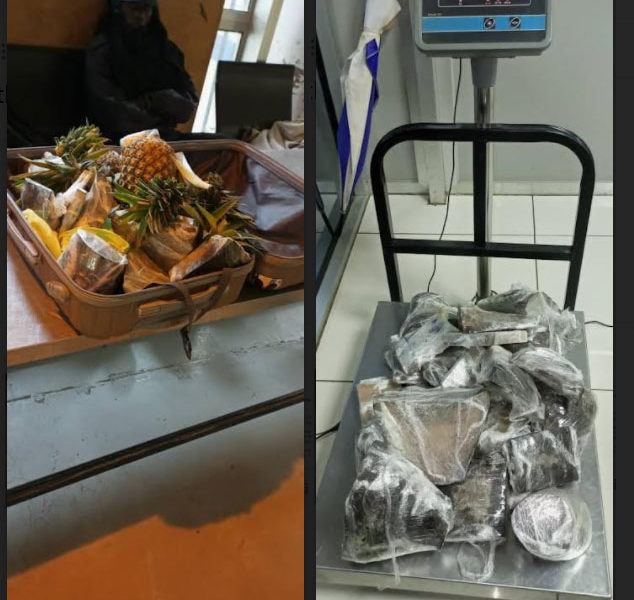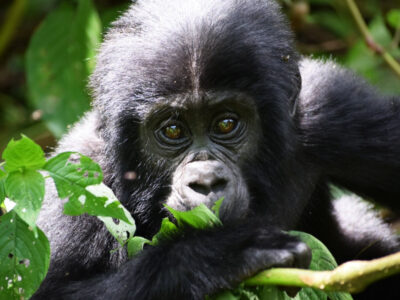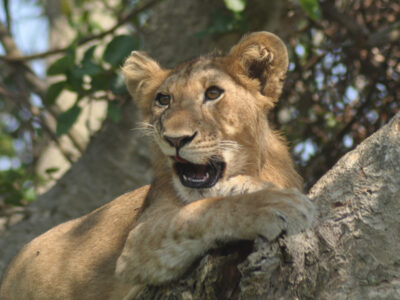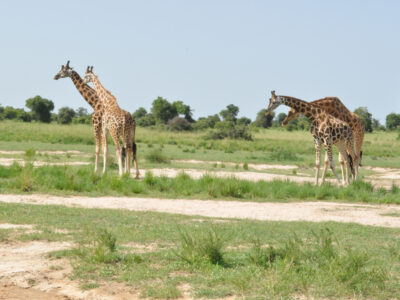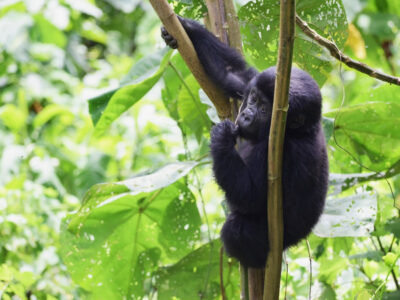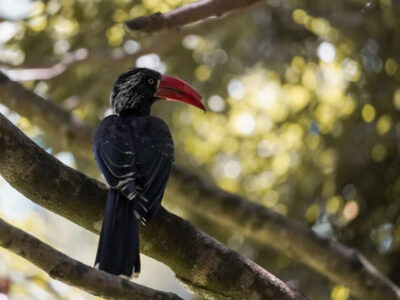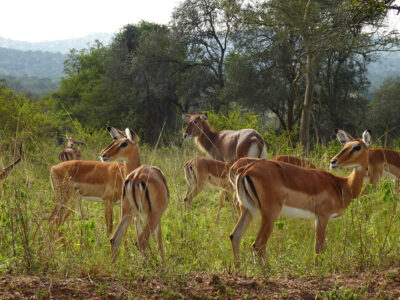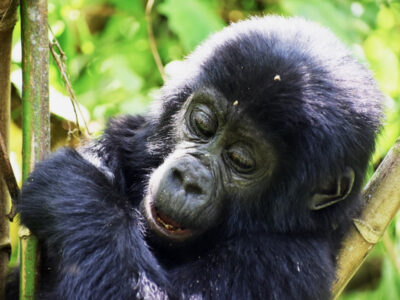UWA ARRESTED YEMENI FOR TRAFFICKING 15KGS OF RHINO HORNS.
Yemeni was arrested by UWA at the airport for trafficking 26 pieces of Rhino horns which weighed 15 kilograms.
On May 29, 2022, the identified suspect as Al-Maamari Maged Mutahar Ali was arrested at 3:10 am by the national conservation’s canine unit that is permanently stationed at Entebbe International Airport during the regular luggage check.
“its dogs found the Rhino horns concealed in food items to disguise their identity,” UWA said. Al-Maamari Maged Mutahar Ali the suspect was handed over to the Aviation Police for further management of the case.
UWA said they urge the public to desist from engagement in wildlife crimes. Over the last six weeks, the wildlife trafficking case is the second high profile to be registered in the country.
A Congolese national identified as Bob Mbaya Kabango was arrested on April 2022 during a joint operation conducted by UWA, the Uganda Peoples Defence Forces (UPDF), and Police at Kibaya village, Bunagana town council in Kisoro District in southwestern Uganda.
Bob Mbaya was found with two cages containing 122 African Grey Parrots. He appeared before Uganda’s Standards, Utilities, and Wildlife Court and was sentenced to seven years in jail on May 12 for each of the two counts of importing wildlife species into Uganda without a valid license and unlawful possession of protected wildlife species contrary to Uganda’s conservation laws. He is serving both sentences concurrently because he pleaded guilty to the offenses.
“The punishment would serve as a warning to others in the business of wildlife trafficking and those who intend to get involved in this business that Uganda cannot be used as either a transit route or a destination for trafficked wildlife species,” UWA said welcoming the court sentence.
In a statement, the wildlife conservation agency said that UWA will continue to make Uganda a dangerous place for anyone involved in wildlife trafficking.
What is wildlife trafficking?
Wildlife trafficking is the commercialization of non-domestic animals and plants which are usually extracted from their natural environment or raising them under uncontrolled conditions either dead or living. The trafficking of animals or plants is a criminal offense according to the laws of the Uganda Wildlife Authority which is concerned with protecting wildlife and plants in Uganda.
Apart from Rhino horns, what are other illegalized wildlife animals that have been trafficked?
Pangolins.
Due to the fact that Tourism sector in Uganda and the rest of the world was at standstill because of coronavirus. Most people especially poachers have used the situation to their benefit by killing animals which is against the law in Uganda. According to Ugandan conservationist and the cofounder of Biodiversity Alliance Rebecca Sandoval, she says pangolins are indeed “still the most trafficked mammals in the world. Pangolin meat and scales are reported to be sourced domestically.
The pangolins trafficking is mostly done in Murchison falls national park however UWA apprehended a number of people suspected to be the masterminds of illegal trade in wildlife. Scales of pangolins are made of keratin, which is the same protein found in rhino horn and human fingernails that’s why they are highly trafficked thus UWA shares programs which are intended to contribute towards achieving the government’s aim of poverty eradication and improved community livelihoods.
Ivory from elephants.
Despite the fact that tourism sector was at standstill, chief warden Pontus Onzima says that they had reported more poaching cases compared to pre lockdown times. He continuously said 60 were arrested during post covid compared to pre covid were 20 poachers were arrested in Queen Elizabeth national park. These poachers were given life sentence punishment however Onzima said that the increase of poaching was because many people lost their livelihood which forced them to look for survival in national parks.
In 2019, Uganda authorities have seized 750 pieces of ivory which were being struggled from south Sudan. Two Vietnamese men were detained for smuggling them however they were bailed out of prison where they used a chance to escape from Uganda.
Hippopotamus teeth.
Between Uganda and Hong Kong, hippopotamus teeth is heavily trafficked which has resulted into declining of hippos in Uganda. Since 2004, the trading of hippopotamus teeth has been banned in Uganda. People involve in poaching which is illegal because of meat and human wildlife conflict where animals are killed by the humans because animals attack them or the crops.
What strengthens anti-poaching techniques and wildlife trafficking in Uganda?
- Exchange information and adopt common policies on wildlife management and development.
- Co-ordinate efforts in controlling and monitoring encroachment and poaching activities that is deploying tour rangers and guides to protect and save guide the lives of animals in game parks.
- Encourage the joint use of training and research facilities and develop common management especially to the local communities where some of the people involved in the poaching crimes get to know how important wildlife is and how it has improved on the road network with their standards of living where they have been employed.
- Planning for trans-border protected areas so UWA enhance cross-sectorial coordination and cooperation among security and law enforcement agencies through the newly formed National Wildlife Crime Coordination.
- Take measures to ratify or accede to, and, implement relevant international conventions. Working with communities around protected areas to address other challenges between wildlife and humans around these areas such as problem animals and human-wildlife conflicts among others.
- It is essential the Uganda authorities utilize the services of INTERPOL and ensure coordination with Vietnam to locate and investigate the defendants however this should include a concerted effort to investigate the wider network involved.
- Placing patrols in all protected areas and arresting people who invade park land without permission from the Authority. This patrolling will put poachers at risk which will save the lives of animals.

